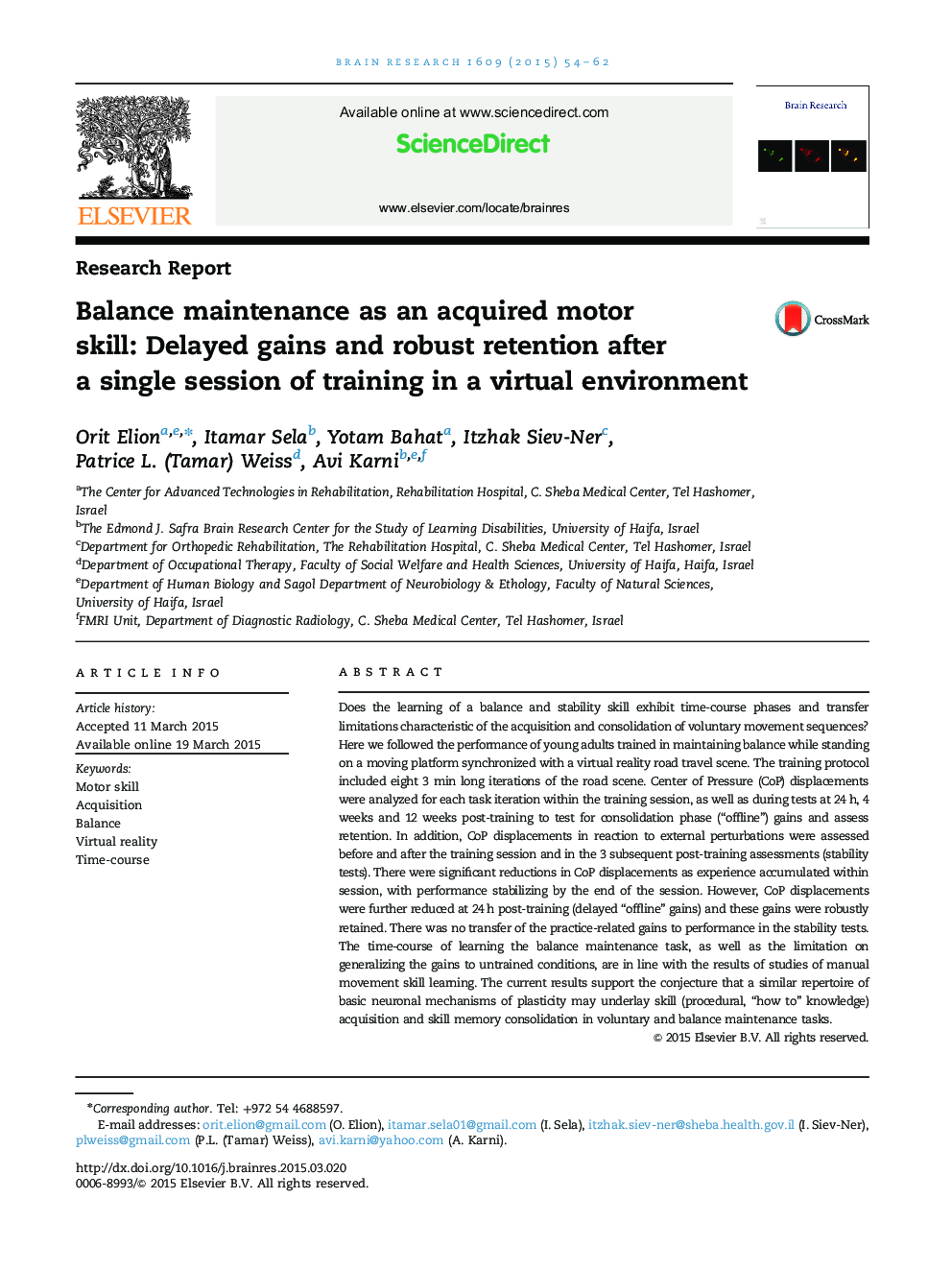| Article ID | Journal | Published Year | Pages | File Type |
|---|---|---|---|---|
| 4323824 | Brain Research | 2015 | 9 Pages |
•A single training session triggered robust learning of a balance maintenance task.•There is a latent memory consolidation phase in the acquisition of skill.•Gains in performance were robustly retained for months after the training session.•The practice-related gains in balance performance are task and context specific.•Manual skill and balance learning reflect similar basic mechanisms of plasticity.
Does the learning of a balance and stability skill exhibit time-course phases and transfer limitations characteristic of the acquisition and consolidation of voluntary movement sequences? Here we followed the performance of young adults trained in maintaining balance while standing on a moving platform synchronized with a virtual reality road travel scene. The training protocol included eight 3 min long iterations of the road scene. Center of Pressure (CoP) displacements were analyzed for each task iteration within the training session, as well as during tests at 24 h, 4 weeks and 12 weeks post-training to test for consolidation phase (“offline”) gains and assess retention. In addition, CoP displacements in reaction to external perturbations were assessed before and after the training session and in the 3 subsequent post-training assessments (stability tests). There were significant reductions in CoP displacements as experience accumulated within session, with performance stabilizing by the end of the session. However, CoP displacements were further reduced at 24 h post-training (delayed “offline” gains) and these gains were robustly retained. There was no transfer of the practice-related gains to performance in the stability tests. The time-course of learning the balance maintenance task, as well as the limitation on generalizing the gains to untrained conditions, are in line with the results of studies of manual movement skill learning. The current results support the conjecture that a similar repertoire of basic neuronal mechanisms of plasticity may underlay skill (procedural, “how to” knowledge) acquisition and skill memory consolidation in voluntary and balance maintenance tasks.
